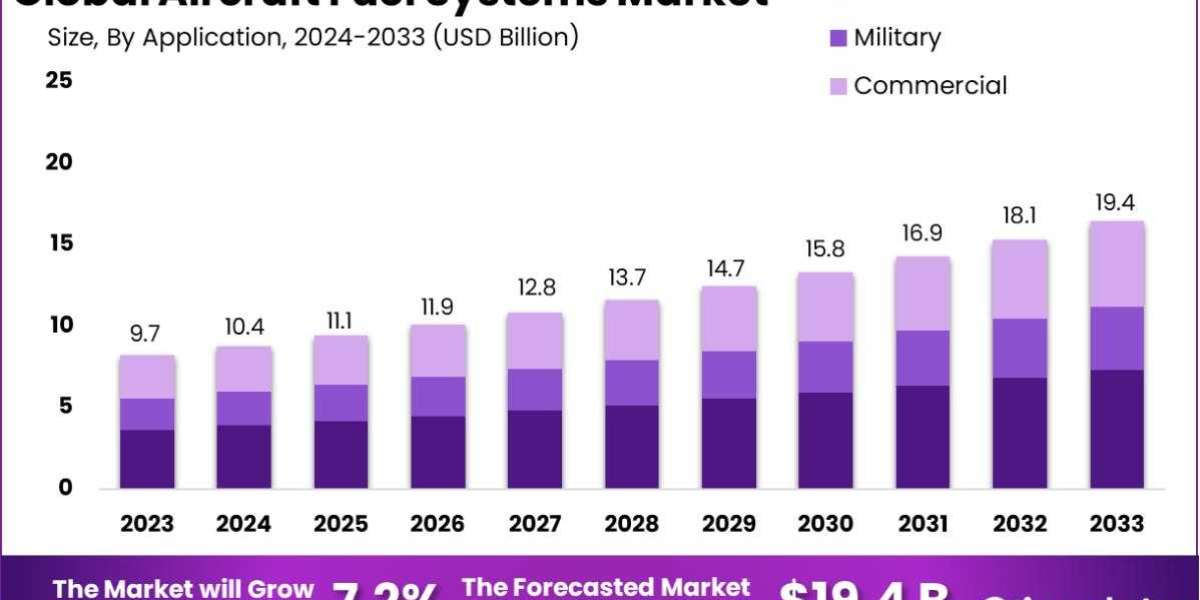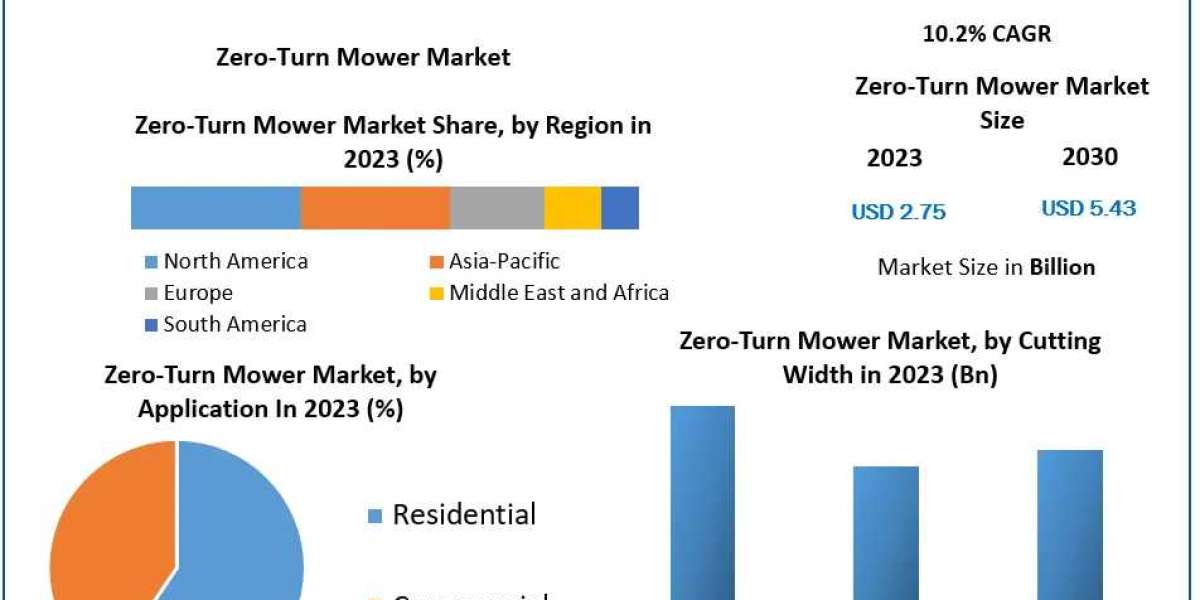Introduction
The Global Aircraft Fuel Systems Market size is expected to be worth around USD 19.4 Billion By 2033, from USD 9.7 Billion in 2023, growing at a CAGR of 7.2% during the forecast period from 2024 to 2033.
Read More - https://market.us/report/aircraft-fuel-systems-market/
The Aircraft Fuel Systems Market is experiencing significant growth as the aviation industry continues to expand globally. These systems are crucial for managing fuel storage, distribution, and utilization in aircraft, ensuring optimal performance and safety during flights. The growing demand for fuel-efficient aircraft, driven by rising fuel costs and environmental concerns, is a major factor propelling the market forward. Airlines and aircraft manufacturers are increasingly focusing on developing and adopting advanced fuel systems that can reduce fuel consumption and emissions.
One of the key growth factors in the Aircraft Fuel Systems Market is the increase in air travel, particularly in emerging economies. As more people travel by air, the demand for new aircraft rises, leading to a greater need for efficient and reliable fuel systems. Additionally, the shift towards more sustainable aviation practices, including the use of biofuels and other alternative energy sources, presents new opportunities for innovation in fuel system technology.
However, the market also faces several challenges. The high cost of advanced fuel systems and the complexities involved in integrating these systems into existing aircraft designs can be significant hurdles for manufacturers. Additionally, the stringent regulations and safety standards that govern the aviation industry add another layer of complexity, making it essential for companies to ensure their products meet these requirements without compromising on performance.
Emerging Trends
- Shift Towards Sustainable Aviation Fuels: The adoption of biofuels and other eco-friendly fuel alternatives is gaining momentum as the aviation industry seeks to reduce its carbon footprint. Fuel systems are being developed to accommodate these new fuel types.
- Lightweight Materials in Fuel Systems: To improve fuel efficiency, manufacturers are increasingly using lightweight materials like composites in fuel system components, reducing overall aircraft weight and enhancing performance.
- Integration of IoT and Smart Sensors: The use of IoT and smart sensors in fuel systems is becoming more prevalent, allowing for real-time monitoring and predictive maintenance, which helps in optimizing fuel management and ensuring safety.
- Advanced Fuel Management Systems: New fuel management systems that offer enhanced control, automation, and precision in fuel distribution are being developed to improve operational efficiency and reduce fuel wastage.
- Hybrid and Electric Aircraft Development: The rise of hybrid and electric aircraft is leading to innovations in fuel systems, with a focus on integrating traditional fuel systems with electric propulsion systems to create more energy-efficient aircraft.
Top Use Cases
- Commercial Aviation: Aircraft fuel systems play a critical role in the operations of commercial airlines, ensuring that fuel is properly stored, managed, and delivered to engines, thereby maximizing efficiency and safety during flights.
- Military Aircraft: In military applications, fuel systems are designed to handle extreme conditions and provide the necessary reliability and performance for various mission profiles, including combat and reconnaissance.
- General Aviation: Small aircraft used for personal, business, or instructional purposes also rely on advanced fuel systems to ensure safe and efficient flights, with a focus on ease of use and reliability.
- Unmanned Aerial Vehicles (UAVs): The growing use of UAVs in both civilian and military applications has led to the development of specialized fuel systems that are lightweight, efficient, and capable of supporting long-endurance missions.
- Emergency and Rescue Operations: Aircraft used in emergency and rescue operations require fuel systems that can operate reliably under challenging conditions, ensuring that these critical missions can be carried out without interruption.
Major Challenges
- High Development Costs: The cost of developing advanced fuel systems, particularly those incorporating new technologies or materials, can be prohibitively high, making it difficult for smaller companies to compete.
- Regulatory Compliance: Meeting the stringent safety and environmental regulations in the aviation industry is a significant challenge, as any new fuel system must undergo rigorous testing and certification before it can be deployed.
- Complex Integration: Integrating new fuel systems into existing aircraft designs can be complex and time-consuming, requiring significant modifications and potentially leading to delays in aircraft production.
- Fuel Type Compatibility: The shift towards alternative fuels requires fuel systems that are compatible with multiple fuel types, posing a challenge in terms of design and material selection.
- Maintenance and Reliability: Ensuring that fuel systems are both reliable and easy to maintain is critical, particularly in commercial and military aviation, where any system failure can have serious consequences.
Market Opportunity
- Expansion of Emerging Markets: The rapid growth of the aviation industry in emerging markets, particularly in Asia and the Middle East, presents significant opportunities for the Aircraft Fuel Systems Market. As new airlines and routes are established, the demand for advanced fuel systems will increase.
- Innovations in Sustainable Aviation: With the growing focus on reducing carbon emissions, there is a strong opportunity for companies to develop fuel systems that support the use of sustainable aviation fuels and other green technologies.
- Growing Demand for UAVs: The increasing use of UAVs across various sectors, including agriculture, surveillance, and delivery services, is creating a new market for specialized fuel systems designed for these unmanned aircraft.
- Retrofit and Modernization Programs: Many airlines are looking to retrofit and modernize their existing fleets to improve fuel efficiency and reduce operational costs. This presents an opportunity for fuel system manufacturers to offer upgrade solutions.
- Research and Development in Electric Propulsion: As the industry moves towards hybrid and electric propulsion systems, there is a significant opportunity for innovation in fuel systems that can integrate with these new technologies, paving the way for more energy-efficient aircraft.
Conclusion
The Aircraft Fuel Systems Market is poised for robust growth, driven by the increasing demand for fuel-efficient and environmentally friendly aircraft. Emerging trends such as the adoption of sustainable aviation fuels, the use of lightweight materials, and the integration of IoT in fuel management are shaping the future of this market. While challenges such as high development costs and regulatory compliance remain, the opportunities for innovation and market expansion are vast. As the aviation industry continues to evolve, the development of advanced fuel systems will play a crucial role in achieving greater efficiency, safety, and sustainability in air travel.



